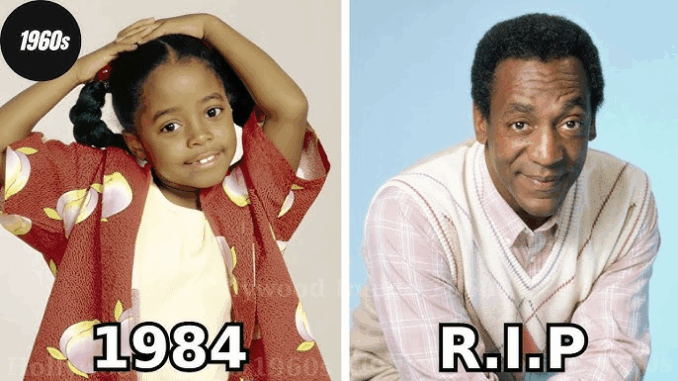
It broke barriers, smashed ratings, and reshaped television history. But today, The Cosby Show is no longer a symbol of progress — it’s a painful reminder of fame gone wrong.
When The Cosby Show debuted in 1984, no one could have predicted the cultural earthquake it would unleash. For eight seasons, the Huxtables reigned supreme, offering an image of Black American family life that was rarely seen — educated, affluent, and unshakably united. At a time when racial tensions simmered across the U.S., the sitcom offered comfort, comedy, and most of all — hope.
The show became a juggernaut. It topped Nielsen ratings for five consecutive years. It revitalized NBC. It paved the way for a generation of Black-led sitcoms, from Family Matters to The Fresh Prince of Bel-Air. And at the center of it all was Bill Cosby, who seemed to embody everything the show preached.
But that was the illusion.
The Lie Behind the Laugh Track
Behind the smiling father figure and sweater vests, Bill Cosby was allegedly leading a secret life that would later horrify the world. Decades of abuse allegations surfaced in the 2000s, exploding into public view in 2014 after a viral comedy routine reignited scrutiny. Dozens of women stepped forward, painting a portrait of systematic manipulation and assault that contradicted everything Cosby’s on-screen persona stood for.
In 2018, Cosby was convicted of aggravated indecent assault. The man once praised as a moral compass for millions was led away in handcuffs — and The Cosby Show was pulled from the airwaves almost overnight.
The Industry’s Reckoning
Hollywood was forced to ask itself hard questions: How did this happen? Who knew? And most critically — can you ever separate the art from the artist?
While some argued that the legacy of the show and the talent of its cast deserved preservation, others saw continued syndication as complicity. Networks, streaming services, and even academic institutions began scrubbing Cosby’s name from their walls. It was a cultural purge — swift and unforgiving.
The Lingering Shadow
Today, The Cosby Show exists in limbo — not fully erased, but undeniably tainted. Students of television still study its groundbreaking format. Fans reminisce in online forums. But any mention of it now comes with a disclaimer, a shadow that refuses to lift.
The show’s rise once gave America a blueprint for unity, representation, and success. Its fall now serves as a cautionary tale: how quickly a legacy can collapse when the foundation is built on deceit.
From Icon to Infamy
The Cosby Show wasn’t just a sitcom. It was a revolution — one that ended in betrayal. As time goes on, one truth remains clear: